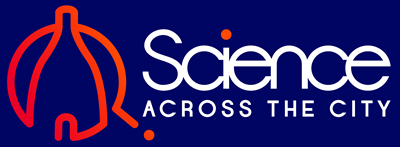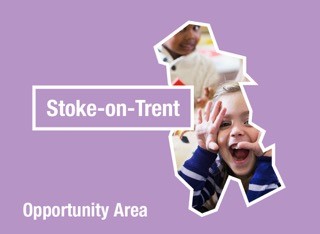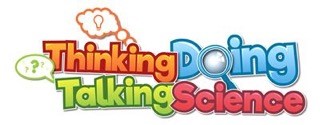Thinking, Doing, Talking, Science (TDTS)- CPD Model
Thinking Doing Talking Science is experiential, is hands on and allows teachers the time to explore the activity that will challenge pupil thinking and deepen understanding. The CPD is rooted in constructivism and is responsive to the learners through assessment for learnin in practice. Each day provides the kit and the space to build understanding of key ideas. It is for this reason the model of CPD will continue to be face to face but with full consideration for COVID safe practice. The CPD days will be postponed until the Spring and Summer term, hosted in a large meeting room and with CLEAPSS guidance implemented and demonstrated for safe and effective practical work.
Dates for the diary:
Stoke-on-Trent, Cohort 2 (All welcome, including NQTs)
12:30 – 15:00 – 03 March 2021 – Day 1, Part 1 (Virtual)
12:30 – 15:00 – 18th March 2021 – Day 1, Part 2 (Virtual)
12:30 – 15:00 – 28th April 2021 – Day 2, Part 1 (Virtual)
12:30 – 15:00 – 12th May 2021 – Day 2, Part 2 (Virtual)
09:00 – 15:30 – 6th October 2021 – Day 3, Port Vale Football Club, Burslem
09:00 – 15:30 – 7th October 2021 – Day 4, Port Vale Football Club, Burslem.
Fully funded for Stoke-on-Trent OA schools, booking no longer available as day one of event has already commenced.
Any questions, please call or e mail.
Olivia Stanyer or Tina Whittaker
07969 601913
tina@ducal.co.uk
ostanyer@moorparkjunior.co.uk
|
Possible Need |
Offer (fully funded- all schools) |
Detail |
Next steps |
| ENGAGE |
Non-science specialists concerned to address pupil misconceptions but unsure of the specific knowledge needed |
TDTS: Thinking Doing Talking Science, Stoke-on-Trent, Cohort 2
Oxford Brookes University
Helen Wilson &
Bridget Holligan |
Given the high rating of this CPD those schools that attended cohort 1 might want to nominate further teachers to join cohort 2.
All NQTs will be encouraged to attend this CPD alongside the coach. (see above)
New teachers joining a school that previously attended TDTS would benefit from joining this cohort |
Register to attend
https://tdtscohort2.eventbrite.co.uk
20th January 2021 |
| Building better whole school progression in scientific enquiry. TAPS- Primary focus |
TAPS: Teacher Assessment in Primary Science, Stoke-on-Trent, Cohort 3
Bath Spa University
Sarah Earle
|
Cohort 1of TAPS featured highly in the impact report.
All science leaders would benefit from this forum particularly as the focus is on the ‘so what’ of the assessment and responsive teaching particularly in enquiry across the school |
Register to join the e CPD
https://tapscohort3.eventbrite.co.uk
21st October 2020 |
| Building better progression for all. BEST- Secondary focus |
BEST:
Cohort 1
EEF research resource features strongly in
Improving secondary science document
NMSLP |
BEST is often mentioned but not necessarily understood in the essential role that quality AfL makes to using teaching time to its full.
A Stoke group would be reflective in using the resources and understanding the quality of the EEF research behind the resource. |
Further booking information available through NMSLP & Stephen Burrowes
sburrowes@potteries.ac.uk |
| EMBED |
|
| NQTs starting in September have less school based experience due to COVID-19 |
SATC will provide a city-wide science mentor for NQTs.
SATC will establish a community of practice for NQTs to share and develop confidence in science practice.
SATC will provide a basic essential toolkit of core reference material for each school with a registered NQT. Supporting consistent key messages. |
A focus on reflective practice to make pedagogical and resource decisions in science that are justified and rooted in best practice |
Register each NQT to the Eventbrite link asap
https://nqtscienceprimary.eventbrite.co.uk
Welcome Meeting – A virtual coffee to talk all questions science
16th September 3:15-4pm |
| Year 7 starting KS3 have gaps in curriculum that need a CALM response through thorough planning |
SATC will provide a city-wide science coach for Transition teaching and learning.
SATC will support the implementation of the CALM tools.
|
Supported teacher and departmental team co-planning, recognising the pedagogical and curriculum bridges between KS2-3, building on expectations and accessing quality resources without re-inventing the wheel. |
Simply E mail tina@ducal.co.uk to express interest in linking with this additional support for teachers of year 7. |
| Overcoming the barriers of ‘Science Capital’- Family experiences, role models, visits, visitors |
SATC will provide guidance and signposting on how to utilise free offers from the wider STEM landscape to |
Many schools have emerging career guidance frameworks that rely on visitors, visits and family engagement. These can continue but will need to be remodelled in light of virtual practice
|
Register to the CPD
https://sciencecapitalcareers.eventbrite.co.uk
29th September 2020
‘Digging Deeper into the STEM landscape’ Session 1 |
| INNOVATE |
|
| Nurturing teachers developing leadership beyond their own subject or beyond their own schools |
SATC will support an action research project to consider the implementation and impact of best practice EEF tools in a science specific context.
A co-create between English specialists and science specialists.
|
An opportunity to join a collaborative partnership with a focus on improving the skills of oracy, reading and writing within the Science curriculum using Literacy strategies identified by the Education Endowment Fund.
Teachers will take practical steps to implement the strategies explored using a range of high-quality science texts to enable our students to truly picture scientific meaning. Facilitated by Debbie Campbell through regular discussion, exploration, and research to assess approaches and their impact upon our students |
Expression of interest to
Either Sarah Preston or Tina Whittaker
tina@ducal.co.uk
Fully funded CPD fees (10 school bursaries for purchase of pupil books).
1st October 2020 (am) Session 1
|
| Giving children a voice. |
SATC will facilitate a cross schools cluster science and teacher council meeting |
A virtual boardroom of up to six schools to discuss and reflect upon science teaching and learning. This was a pilot last year and was a creative solution to meeting whilst in lockdown. The subject leaders involved were surprised at the child voice perceptions and as such the potential for impact was powerful |
Register your school place on the Children & Teacher Science Council
– SL and up to six pupils per school
https://stokesciencecouncil2021.eventbrite.co.uk
14th June 2021 |
*SATC continues to actively support the following communities established in phase 1:
- The Science Influencers,
- The Transition Steering Group,
- And Termly Subject leader networks.
*SATC will further enable buddy science mentors whereby a school can show that they would benefit significantly from the additional capacity.
*SATC will advocate for pupil direct activity through key partners established in phase 1:
The Great Science Share. University of Manchester, and SPOTY award, Keele University.
*SATC will provide the £600 bursary for schools starting PSQM in Round 19 and Round 20. (Round 20 PSQM session 1 will take place on the 8th October 9:15-10:45 – Virtual conference tools.



